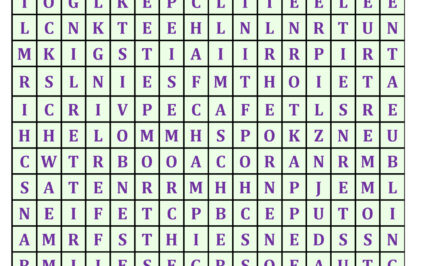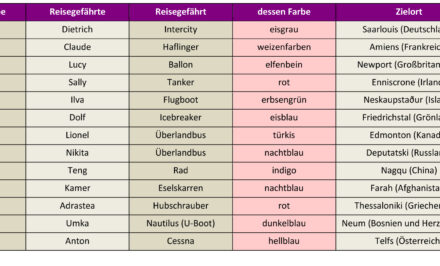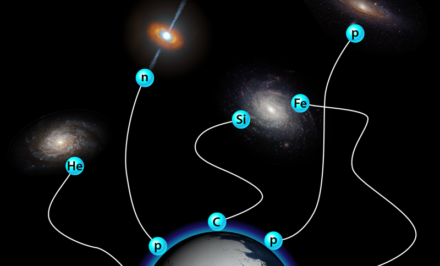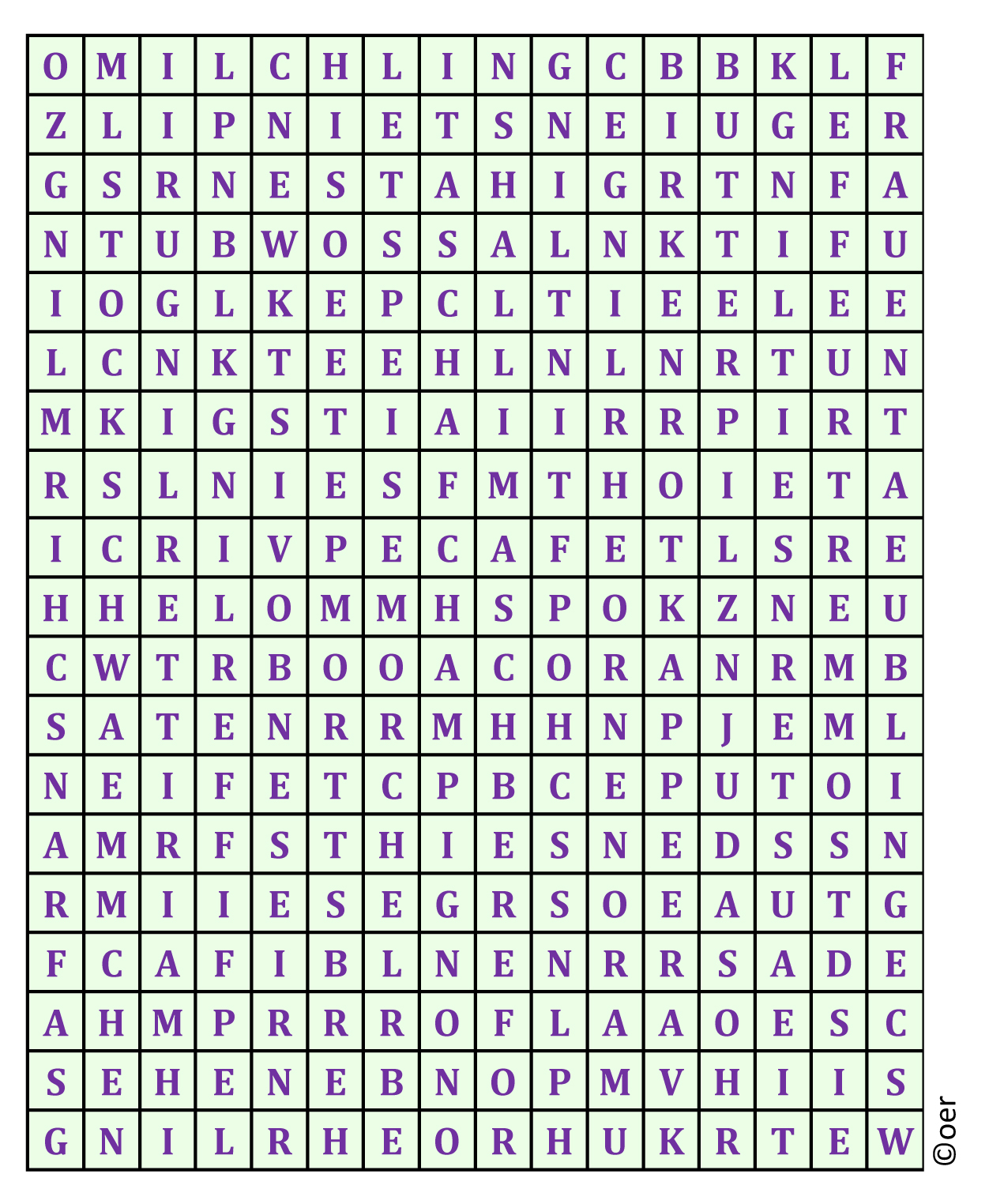Wie wird deutsche Literatur eigentlich im Ausland aufgenommen? CULTurMAG wirft einen ungewöhnlichen Blick auf aktuelle Neuerscheinungen. Lucy Renner Jones übersetzt (u.a.) deutsche Literatur ins Englische – und klopft für uns in unregelmäßigen Abständen Neuerscheinungen heimischer Autoren auf Ihre Aussichten auf dem englischsprachigen Markt ab. Heute: Cornelia Travnicek: „Chucks“.
 An inspirational antidote to chick lit
An inspirational antidote to chick lit
Mae is the kind of girl most mothers are afraid their daughters might become at the onset of puberty: she disappears for days on end, brings down-and-out friends back home, drinks beer, takes drugs, hits strangers and is made to do community service at an AIDS centre. And sure enough, Mae’s mother is at a loss: after some years of estrangement, she invites young Mae over for a Tupperware party to celebrate her birthday. Though Tupperware might get in the way of expressing feelings, Mae loudly expresses hers anyway, ordering fifteen boxes “to store drugs in”.
Mae is Cornelia Travnicek’s literary creation in her debut novel Chucks and despite what her mother thinks, she is excellent company. She is an anti-Lindsay-Lohan, an anti-glamour-puss, brutally honest, politically left, and utterly bored by consumerism. She is not about to be labelled by her mother who reads self-help books in an attempt to find the cause for her daughter’s scruffy appearance and lack of interest in school:
“Hast Du Probleme? Du kannst mir alles erzählen.” (…)
“Die Gesellschaft hat Probleme, (…) viel größere sogar als das eine, das ich damit verursache, wenn ich nicht zur Schule gehe. Und um diese Probleme zu sehen, brauche ich übrigens keinen zweitklassigen Unterricht zusammen mit einem Haufen pubertärer und grausamer Mitschüler, von denen die Hälfte noch ein Brett vor dem Kopf hat, auf dem Dr.-Sommer-Seite der Bravo klebt.” (…)
“Wirst Du gemobbt?”
Mobbing war damals gerade in, das Standardproblem, gleich nach Drogen und Liebeskummer.
“Es ist nichts von den lustigen Dingen, die in deinem tollen Elternratgeber stehen”, antwortete ich und wehrte ihre Hand ab. Ich hatte keine Lust, etwas zu erfinden, das sie glaubte zu verstehen. Vielleicht hätte ich an diesem Abend nichts essen sollen. So eine kleine Essstörung würde ihr wieder Halt geben.
Ja, da hätte sie schon gewusst, was zu tun wäre.
Nor is she impressed by her father’s attempts to talk to her.
“Worüber reden? (…) Ist doch alles klar: Durch das Ableben deines gleichgeschlechtliches Nachkommens hast du dich emotional vom weiblichen Teil unserer Familie distanziert, wodurch es dir möglich wurde, und zu hintergehen. Statt dich mit der Trauer deiner Ehefrau auseinanderzusetzen, hast du dir schnelle Intimität ohne große Gefühle geholt.”
At the centre of Mae’s family, a huge hole has been left by the death of Sebastian, Mae’s brother: the parents both reel in pain, away from each other and from Mae too. The young Mae looks for honesty and guidance on the streets, first in Tamara, a poetic, older girl, then in Jakob, a lone wolf whom she moves in with, and finally in HIV-positive Paul. As far as plots go, this doesn’t promise much in the way of laughs, yet the writing is at times very funny, the most extraordinary thing about Travnicek’s novel being Mae’s humour; her sassy, barbed comments spirit the reader along. What’s more, Travnicek has a habit of taking you by the hand and going on a detour from the action, as if she’s rebelling against being pushed forwards in our turbo-accelerated times. It’s as if she’s saying, “Stop running around and have a look at this. That’s it. Just turn off Facebook for a second.”
Comparisons haven been drawn, rightly so, between Chucks and Catcher in the Rye – Holden Caulfield’s red cap has been swapped for a pair of red chucks (they belonged to the dead Sebastian and are now worn by Mae day in and day out); the language in the dialogues is witty and vibrant; teenage alienation and rebellion are themes. And Mae is a girl-woman, a counterpart to Holden Caulfield’s man-child, who, despite her tough talk, drops her guard when she falls in love with Paul. They discover each other in a series of abruptly asked questions, too immature to act sophisticated, too curious about the other to play games. Her reaction at one point is to squeeze Paul’s hand in fear, and as she does so, her hard exterior cracks open to reveal a little girl again. Intimacy is described with a mixture of adult sexuality and childlike wonder – despite Mae’s experience of the world and grief, she is still a girl.
It can hardly be a coincidence that Travnicek chooses Helene Hegemann’s pet of choice, an axolotl, to put in Paul’s fish tank. Those who have done their homework will know that axolotls (a kind of water lizard) apparently never mature past adolescence, which of course is a mixture of fact and fiction but as a literary metaphor, it serves its purpose. Unlike Hegemann’s dystopian character Mifti, however, Mae would only go to Berghain if she could puke on people’s shoes because although may be angry, she’s not dysfunctional: her relationships seem to work, even in the circumstances.
In fact, Mae seems positively healthy. Admittedly, she’s the kind of girl who has men running – fellow Austrian writer Clemens J. Setz comment on the jacket cover is that he’s not sure if he would emerge from being stuck in a lift with Mae alive but that it would be worth the try. But what could be more refreshing than a girl reaching puberty who is not obsessed by her looks, her image, and her make-up in this day and age of retro-bimbo? At one stage, she decides to leave Jacob because he doesn’t appreciate the wittiness of her jokes:
“Von meiner Schokoladenseite ist für zu Hause auch der Bruch genug”, sage ich, und als der Mann neben mir nicht auf gelungenes Wortspiel reagiert, weiß ich, dass es Zeit ist zu gehen.”
Chucks is an inspirational read, an antidote to chick lit and certainly has the potential to become a cult novel in a similar way to Catcher in the Rye.
Lucy Renner Jones
Lucy Renner Jones ist eine freiberufliche Autorin und Übersetzerin von Texten ins Englische, hauptsächlich aus den Bereichen Kunst, Fotografie, Film und Literatur. Zur Homepage.
Cornelia Travnicek: Chucks. Deutsche Verlags-Anstalt 2012. 192 Seiten. 14,99 Euro.











